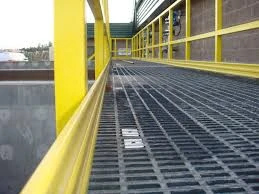
-
 Afrikaans
Afrikaans -
 Albanian
Albanian -
 Amharic
Amharic -
 Arabic
Arabic -
 Armenian
Armenian -
 Azerbaijani
Azerbaijani -
 Basque
Basque -
 Belarusian
Belarusian -
 Bengali
Bengali -
 Bosnian
Bosnian -
 Bulgarian
Bulgarian -
 Catalan
Catalan -
 Cebuano
Cebuano -
 China
China -
 China (Taiwan)
China (Taiwan) -
 Corsican
Corsican -
 Croatian
Croatian -
 Czech
Czech -
 Danish
Danish -
 Dutch
Dutch -
 English
English -
 Esperanto
Esperanto -
 Estonian
Estonian -
 Finnish
Finnish -
 French
French -
 Frisian
Frisian -
 Galician
Galician -
 Georgian
Georgian -
 German
German -
 Greek
Greek -
 Gujarati
Gujarati -
 Haitian Creole
Haitian Creole -
 hausa
hausa -
 hawaiian
hawaiian -
 Hebrew
Hebrew -
 Hindi
Hindi -
 Miao
Miao -
 Hungarian
Hungarian -
 Icelandic
Icelandic -
 igbo
igbo -
 Indonesian
Indonesian -
 irish
irish -
 Italian
Italian -
 Japanese
Japanese -
 Javanese
Javanese -
 Kannada
Kannada -
 kazakh
kazakh -
 Khmer
Khmer -
 Rwandese
Rwandese -
 Korean
Korean -
 Kurdish
Kurdish -
 Kyrgyz
Kyrgyz -
 Lao
Lao -
 Latin
Latin -
 Latvian
Latvian -
 Lithuanian
Lithuanian -
 Luxembourgish
Luxembourgish -
 Macedonian
Macedonian -
 Malgashi
Malgashi -
 Malay
Malay -
 Malayalam
Malayalam -
 Maltese
Maltese -
 Maori
Maori -
 Marathi
Marathi -
 Mongolian
Mongolian -
 Myanmar
Myanmar -
 Nepali
Nepali -
 Norwegian
Norwegian -
 Norwegian
Norwegian -
 Occitan
Occitan -
 Pashto
Pashto -
 Persian
Persian -
 Polish
Polish -
 Portuguese
Portuguese -
 Punjabi
Punjabi -
 Romanian
Romanian -
 Russian
Russian -
 Samoan
Samoan -
 Scottish Gaelic
Scottish Gaelic -
 Serbian
Serbian -
 Sesotho
Sesotho -
 Shona
Shona -
 Sindhi
Sindhi -
 Sinhala
Sinhala -
 Slovak
Slovak -
 Slovenian
Slovenian -
 Somali
Somali -
 Spanish
Spanish -
 Sundanese
Sundanese -
 Swahili
Swahili -
 Swedish
Swedish -
 Tagalog
Tagalog -
 Tajik
Tajik -
 Tamil
Tamil -
 Tatar
Tatar -
 Telugu
Telugu -
 Thai
Thai -
 Turkish
Turkish -
 Turkmen
Turkmen -
 Ukrainian
Ukrainian -
 Urdu
Urdu -
 Uighur
Uighur -
 Uzbek
Uzbek -
 Vietnamese
Vietnamese -
 Welsh
Welsh -
 Bantu
Bantu -
 Yiddish
Yiddish -
 Yoruba
Yoruba -
 Zulu
Zulu
fiberglass fertilizer tanks
The Benefits of Fiberglass Fertilizer Tanks in Agriculture
In modern agriculture, the efficient storage and application of fertilizers are vital for maximizing crop yield and ensuring sustainability. Among various storage solutions, fiberglass fertilizer tanks have emerged as a popular choice due to their unique set of advantages over traditional materials. This article will explore the benefits of fiberglass fertilizer tanks and their role in enhancing agricultural practices.
Fiberglass, or glass-reinforced plastic (GRP), is a composite material made from a polymer matrix reinforced with glass fibers. This combination offers remarkable strength-to-weight ratios, making fiberglass extremely durable yet lightweight. When it comes to storing fertilizers, which can often be corrosive or reactive, fiberglass provides an excellent solution. Unlike metal tanks that can rust or corrode over time, fiberglass tanks resist chemical degradation, thereby ensuring the integrity of the stored fertilizers and reducing the need for frequent replacements.
One of the key advantages of fiberglass fertilizer tanks is their versatility. These tanks can be manufactured in various sizes and shapes, catering to different agricultural needs and space constraints. Whether it's for small-scale operations or large farms, fiberglass tanks can be tailored to meet specific requirements. This flexibility allows farmers to optimize their storage capabilities, ensuring that they have enough fertilizer on hand during critical planting and growing periods.
fiberglass fertilizer tanks

Another significant benefit of fiberglass tanks is their resistance to ultraviolet (UV) rays and temperature fluctuations. Traditional storage tanks may suffer from brittleness or degradation when exposed to prolonged sunlight, but fiberglass tanks are designed to withstand such environmental stressors. This resilience not only extends the lifespan of the tanks but also minimizes the risk of spills or leaks, further protecting the environment from potential contamination.
Furthermore, the smooth inner surface of fiberglass tanks reduces the potential for fertilizer buildup, allowing for more efficient cleaning and maintenance. This characteristic is crucial for maintaining the quality of the fertilizers and ensuring that no harmful residues affect crop health. Regular cleaning procedures are simplified with fiberglass, promoting better hygiene and longer-lasting storage solutions.
In terms of cost-effectiveness, although the initial investment for fiberglass tanks may be higher than traditional materials, their durability and low maintenance needs translate into long-term savings. Farmers can avoid frequent replacements and reduce the costs associated with maintaining metal tanks, creating an economically viable option in the long run.
In conclusion, fiberglass fertilizer tanks offer a range of benefits that make them an excellent choice for modern agricultural practices. Their corrosion resistance, versatility in design, UV stability, low maintenance requirements, and long-term cost-effectiveness enhance the storage and application of fertilizers, ultimately contributing to improved crop yields and environmental sustainability. As the agricultural industry continues to seek innovative solutions, fiberglass tanks stand out as a robust and reliable option for farmers looking to optimize their operations.









